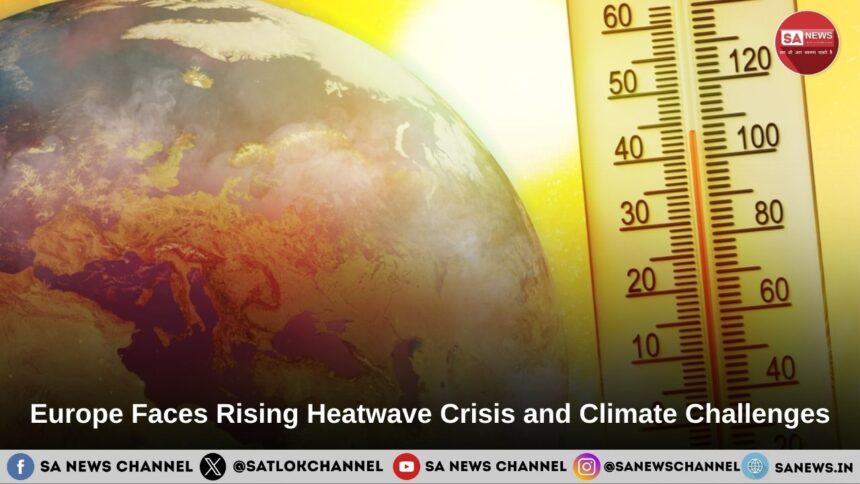Europe has been experiencing an unprecedented heatwave since the end of June 2025. Record temperatures have been recorded across the continent. Spain’s Huelva region reached 46°C, France hit 40°C, and Italy issued heat warnings for 20 cities. Central European nations have been placed under high-level red alerts. Forest fires and drought have erupted in southern and central Europe. Experts warn that the situation will worsen if urgent climate action is not taken.
Rapid increase in temperatures in Europe
Europe is the fastest-warming continent. Its average temperature is increasing by 0.5°C per decade. This is twice the global average temperature increase of 0.2°C per decade. In the past five years, Europe’s temperature has been 2.4°C above pre-industrial levels. This rapid warming is partly due to the proximity of the Arctic, the region with the fastest warming on Earth.
Climate feedback mechanism
Soil drying is an important reaction mechanism. Higher temperatures cause the soil to dry out, which reduces moisture. This releases more heat back into the atmosphere, which causes drying. This cycle increases heatwaves and droughts. Changes in the jet stream also contribute to this. The dual jet stream phenomenon creates weak winds and high-pressure areas, causing heat in Europe to linger.
Temperature:
Temperatures were recorded above 38°C in many places, while some reached 48°C, causing ‘extreme heat stress’, according to Copernicus.
In mid- and late June, two major heatwaves hit western and southern Europe.
Impact:
Health: The heatwave has put people’s health at risk. The elderly and young children are particularly affected, according to The Guardian.
Natural Disasters:
The heat has increased forest fires. This has led to people being evacuated to safer places.
Wildfires and environmental stress
Wildfires and environmental stress have a major impact on human life and the environment. A wildfire is a large fire in a forest or grassland. These fires cause massive pollution, destroy biodiversity, and cause climate change.
FAQs
Q. What are the causes of stress?
Ans: Significant life changes, such as moving, starting a new job, getting married, or experiencing a loss, can cause stress.
Q. What is mental stress?
Ans: Stress is a natural human reaction that happens to everyone. In fact, your body is designed to experience and react to stress.
Q. How do wildfires affect the environment?
Ans: It burns larger vegetation, wildlife habitats, and impacts air quality, causing landslides and soil erosion.









